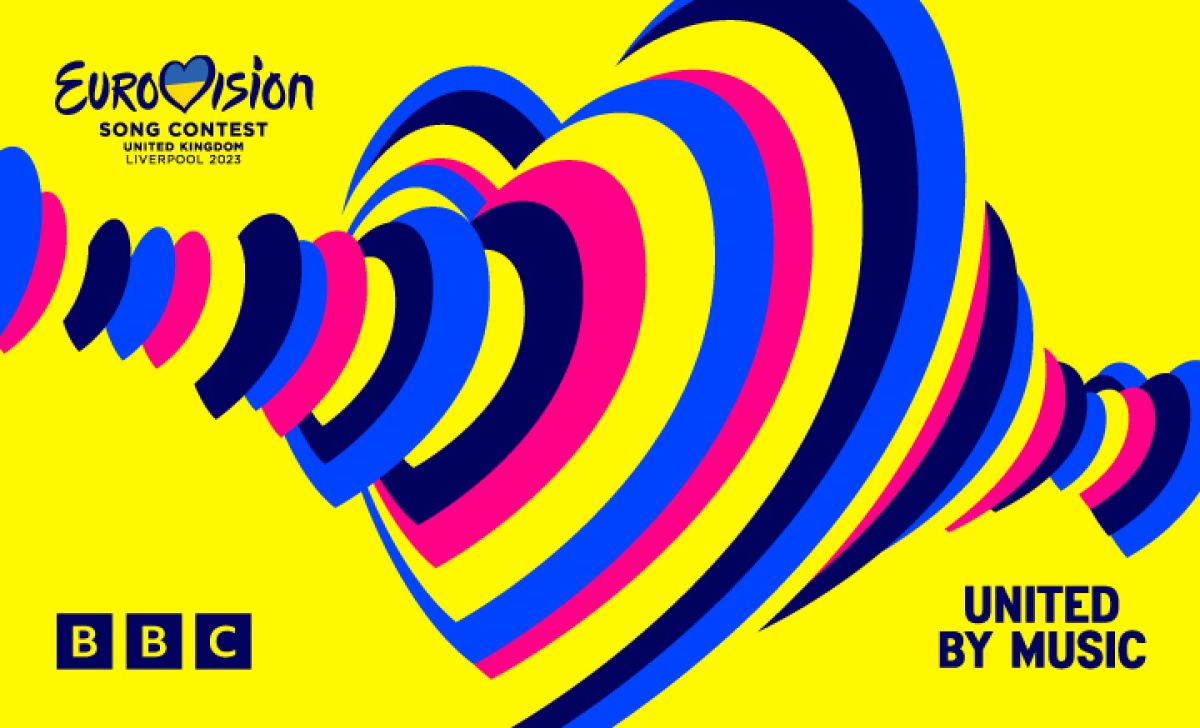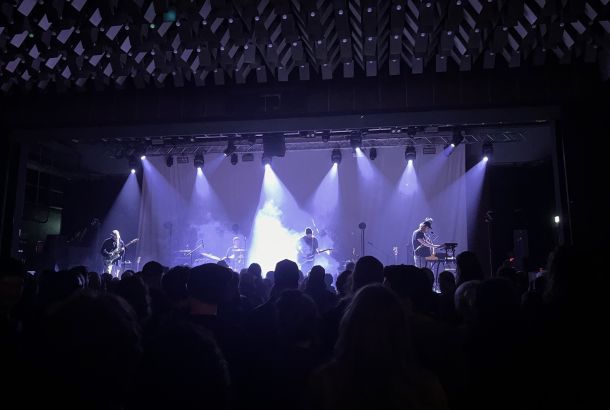
Eurovision is back in the UK for the first time before most of our writers were even born! We last won the competition in 1997, thanks to Katrina and the Waves (‘Love Shine a Light’), and hosted it the following year, where the competition was famously won by transgender Israeli songstress Dana International (‘Diva’).
Believe it or not, the UK has the third most wins at Eurovision, and we have hosted the competition more times than any other country. The late 90s saw us lose favour with our neighbours; we’ve only made the top 10 thrice in the 21st century.
Last year’s Eurovision was, of course, won by Ukraine – the first country to win the competition three times this century. With Ukraine unable to meet the EBU’s safety requirements because of Russia’s invasion of the country, the UK – who came second place for the first time since 1998 – graciously accepted the offer to host.
The grand final took place last night, and it was shown live on BBC One. The Mancunion was lucky enough to attend exclusive press previews for semi-finals 1 and 2 and the grand final. Check out our semi-final coverage for our opinions on the acts and our grand final article for an overview of the night – prior to the results.
Last night’s grand final was the most-watched grand final in Eurovision history. It saw a five minute peak of 11 million and an average of 9.9 million and a share of 63%.
As expected, the competition was won by Sweden with the song ‘Tattoo’ by Loreen. Loreen previously won Eurovision for Sweden back in 2012, with the club banger ‘Euphoria’. One of the most successful Eurovision songs of all time, it reached number three in the UK charts – a rarity for a Euorvision song.
Loreen is only the second person to win Eurovision twice, following in the footsteps of Ireland’s Johnny Logan.
Logan won Eurovision in 1980 with ‘What’s Another Year’ and in 1987 with ‘Hold Me Now’; he wrote the latter. He also composed two Eurovision songs for Linda Martin: ‘Terminal 3’ (1984), which placed second, and ‘Why Me?’ (1992), which won. So, technically, he’s had three Eurovision wins – two as a performer.
Loreen is the first woman to have won the competition twice – and also the first Muslim (she was raised by liberal Muslim, Moroccan Berber parents).
Sweden now joins Ireland as the countries with the highest number of Eurovision wins. Ireland, the only country with three consecutive wins (1992, 1993 and 1994), has not won the competition since 1996 – and they have not done well at all in recent years.
Sweden, meanwhile, joins Ukraine (who of course won the competition last year), as the only countries to have won Eurovision thrice this century. Sweden will no doubt be ahead of both Ireland and Ukraine in the coming years, regarding most overall wins and most wins this century, respectively.
Poetically, next year marks half a century since ABBA won Eurovision for Sweden – the country’s second win. If that will not get ABBA to finally reunite, I don’t know what will.
Sweden were the favourites to win this year whilst Finland (Käärijä – ‘Cha Cha Cha’) were the second favourites – and the results reflected that, with Finland placing second.
As I predicted, Sweden won the jury vote whilst Finland won the televote. Sweden came second in the televote whilst Finland came fourth in the jury vote.
Whilst Sweden received 15 sets of 12 points from the juries (including from Finland and the UK), they did not receive any from the televote, which means not a single country gave most of its votes to Sweden.
But Sweden had enough votes from each country to claim the second top spot in the televote. Indeed, every single country (including the new “rest of the world” category) awarded Sweden anywhere between 1 and 10 points – except Finland (I guess they knew Sweden was the one to beat), even though their jury awarded Sweden 12 points.
Finland only received two sets of 12 points from the juries (Norway and Sweden) but 18 sets of 12 points from the televote (including from Sweden and the UK). The Finnish public gave their 12 points to Norway, who had one of the most amazing results of the night: after the jury vote, they were 17th, but the televote saw them jump up to fifth place (they were third in the televote).
The United Kingdom, who came second last year, came second from last. We placed 22nd in the jury vote and 25th in the televote, finishing 25th overall. In recent years, host countries have often found their entries flopping; the the last time Ukraine hosted, they came third from the bottom, so perhaps we flopped in honour of Ukraine…
It’s heart-breaking – and, frankly, embarrassing – that after finally doing well again last year, we are now back at the bottom.
We know what works at Eurovision yet we continue to pick songs that do not stand a chance. We came fifth in 2009 with Jade Ewen (‘It’s My Time’) and second in 2022 with Sam Ryder (‘Space Man’) so we know how to do well – yet we keep on sending boring songs.
I’ll never forget when we followed up Engelbert Humperdink (who came 25th out of 26 with ‘Love Will Set You Free’) with another fossil the following year: Bonnie Tyler (who came 19th out of 26 with ‘Believe in Me’). We tried our luck with a legend past their prime, we bombed, and so we… tried our luck with another legend past their prime… We learned nothing, and we continue to learn nothing.
We have the second best music industry in the world but struggle to produce successful Eurovision acts anymore. Is it because we do not take it seriously? If we do not take the competition seriously, how can we expect the competition to take us seriously?
Perhaps the UK’s disastrous standing since the late 1990s is partially political but then how do we explain our great results in 2002, 2009 and 2022? Also, just take a look at our entries over the past two decades – the majority of them have been rubbish. Not even we like them – so how can we expect the rest of Europe to like them?
Mae Muller’s ‘I Wrote a Song’ is a bop, yes, but it is generic and unexciting. It only reached 30 on the UK charts (though it is predicted to reach the top 10 next week). Whilst Mae is a great songwriter, she is not the strongest vocalist nor performer; she pales in comparison to most of the other young women who competed this year, from Israel’s Noa kirel to Norway’s Alessandre.
The worst part is: we did well last year. We finally entered a good song and achieved our best result since 1998 – the year before I was born.
Hopefully this is a learning lesson for the UK – but I’m not counting on it.
Eurovision is back next May; it will take place in Sweden.







